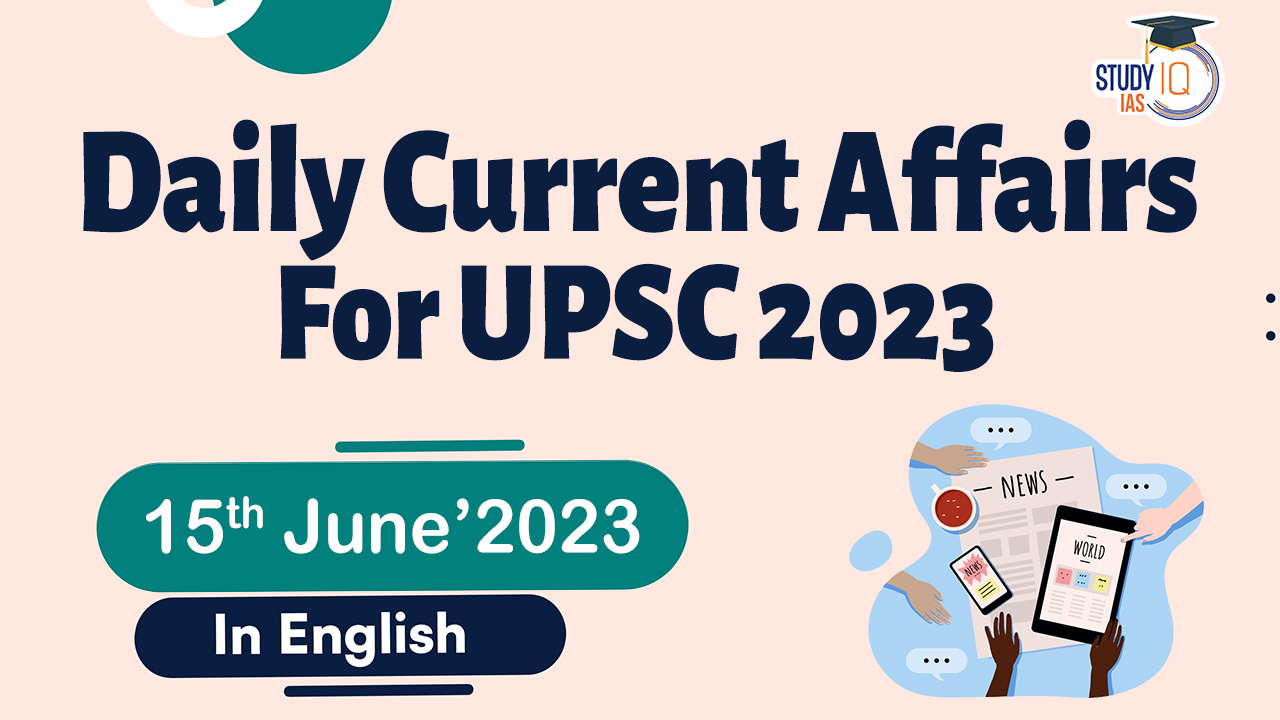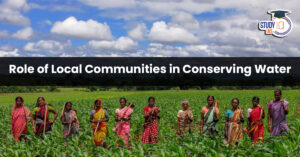Daily Current Affairs for UPSC 2023
Q) Recently seen in news, the ‘Antardrishti’ dashboard was launched by which one of the following Ministry/organization?
- NITI Aayog
- Reserve Bank of India
- Ministry of External Affairs
- Ministry of Social Justice and Empowerment
Daily Current Affairs for UPSC – 14 June April 2023
Explanation:
- Option (2) is correct: A financial inclusion dashboard named ‘Antardrishti’ has been launched by Reserve Bank of India. The dashboard has the capability to provide necessary knowledge to evaluate and track the development of financial inclusion by recording relevant data. The dashboard will make it possible to assess the degree of financial exclusion at a granular level across the nation so that additional steps can be taken to address it. Presently the dashboard is intended for internal use in the RBI.
Q) With reference to ‘transgenic crops’, consider the following statements:
- In transgenic crops the genetic material of the plant is altered by introducing a desired gene from another organism into it.
- A soil bacterium named ‘Agrobacterium tumefaciens’ is commonly used to introduce desired genes into plants.
- These crops may have a better nutritional composition as compared to their ordinary versions.
How many of the statements given above is/are correct?
- Only one
- Only two
- All three
- None
Explanation:
- Statement 1 is correct: Transgenic crops, also known as genetically modified (GM) crops are plants that have been modified through the introduction of genetic material from a different organism. The process of creating transgenic crops involves isolating a desirable gene from one organism and inserting it into the genetic material of the target crop plant. This gene is selected because it imparts a specific desirable trait, such as resistance to pests, tolerance to herbicides, improved nutritional content, or enhanced productivity.
- Statement 2 is correct: Agrobacterium tumefaciens is a soil bacterium that naturally transfers DNA into plant cells. Scientists exploit this ability by using modified versions of Agrobacterium to introduce desired genes into plants.
- Statement 3 is correct: Transgenic crops are often engineered to possess traits that enhance their yield potential. This includes traits like improved resistance to pests, diseases, and environmental stresses, as well as increased tolerance to herbicides. Genetic engineering can be used to improve the nutritional composition of crops. For example, bio-fortified GM crops can be developed to have higher levels of essential vitamins, minerals, and other nutrients.
Q) Consider the following statements about North Atlantic Treaty Organization (NATO):
- NATO originates from the Washington Treaty.
- NATO membership is open to any European nation that can strengthen the security in the North Atlantic region.
- Sweden recently became a NATO member.
How many of the statements given above is/are not correct?
- Only one
- Only two
- All three
- None
Explanation:
- Statement 1 is correct: North Atlantic Treaty Organization (NATO) was formed in 1949 with the aim of acting as a deterrent to the threat of Soviet expansion in Europe after World War II. The Washington Treaty, or North Atlantic Treaty, forms the basis of the NATO. The organization acts as a collective security alliance with the aim of providing mutual defence through military and political means if a member state is threatened by an external country (Article 5 of the North Atlantic Treaty).
- Statement 2 is correct: NATO’s Open-door policy (Article 10 of the treaty) enables any European country that can enhance and contribute to the security of the North Atlantic area to join the alliance. Major Non-NATO Ally Status is a designation given by the US government to close allies that have strategic working relationships with the US Armed Forces but are not members of the NATO. The US has designated 30 other countries including Japan, South Korea, Japan, Israel etc. as major non-NATO allies.
- Statement 3 is incorrect: Entry of new members is decided by unanimous consensus among existing members of NATO. Recently, Türkiye, a NATO country, expressed that there would be no NATO entry for Sweden unless anti-Turkish protests stop in Sweden.
Q) With reference to ‘duty-free quota free (DFQF) scheme’, consider the following statements:
- The DFQF scheme requires all developing member countries to give preferential market access to all products coming from least developed countries.
- India was the first developing country to extend this facility to the least developed countries.
- The decision to provide DFQF access was taken for the first time at the World Trade Organization’s Bali Ministerial Meeting.
How many of the statements given above is/are correct?
- Only one
- Only two
- All three
- None
Explanation:
- Statement 1 is correct but statement 3 is incorrect: Under the duty free quota free (DFQF) scheme, all developed and developing country members must declare to provide preferential market access for all products originating from all least developed countries (LDCs). The decision to provide duty free quota free (DFQF) access for LDCs was taken for the first time at the WTO Hong Kong Ministerial Meeting in 2005.
- Statement 2 is correct: India became the first developing country to extend this facility to LDCs in 2008. Initially, the access was up to 85 per cent of India’s total tariff lines but was raised to 98.2% of India’s tariff lines in 2014. About 85 per cent of products offered by India at zero tariffs to least developed countries (LDCs) under the duty-free quota free (DFQF) scheme of the WTO remain unutilized, according to a report by the LDC Group at the multilateral trade body. Data shows that China’s utilization rate for similar tariff lines is 64%, while only 8% of the lines showing utilization rate above 95%.
Q) Consider the following statements about Open Market Sale Scheme (OMSS):
- Under OMSS, the Food Corporation of India sells surplus stocks of wheat through e-auction.
- OMSS aims to regulate the prices of wheat in the open market.
Which of the statements given above is/are correct?
- 1 only
- 2 only
- Both 1 and 2
- Neither 1 nor 2
Explanation:
- Statement 1 and 2 are correct: Under Open Market Sale Scheme (OMSS), the Food Corporation of India sells surplus stocks of wheat and rice in the open market at pre-determined prices through e-auction. The main objective of OMSS is to dispose of surplus stocks of wheat and rice held by FCI, and to regulate the prices in the open market. FCI holds weekly auctions to sell grains under OMSS through the platform of the National Commodity and Derivatives Exchange Limited (NCDEX). As per the recent changes, the Union government will no longer sell rice and wheat from the central pool to state governments under the Open Market Sale Scheme (OMSS).


 Draft Digital Personal Data Protection R...
Draft Digital Personal Data Protection R...
 Daily Quiz 28 March 2025
Daily Quiz 28 March 2025
 Role Of Local Communities In Conserving ...
Role Of Local Communities In Conserving ...





















